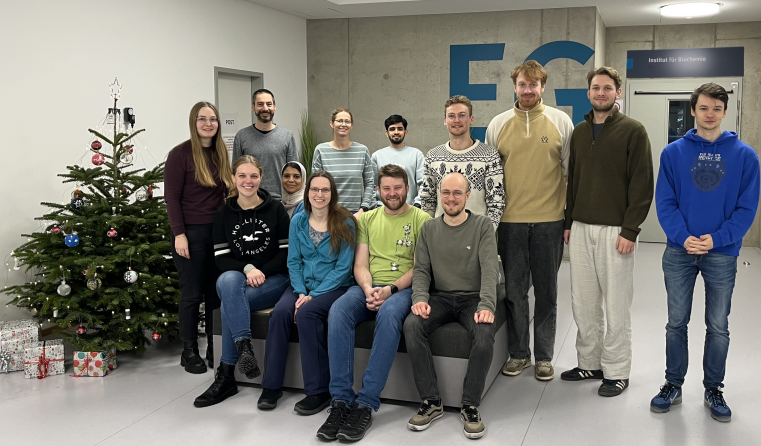
RESEARCH - Daniel Kümmel
Biochemistry
and Structural biology

We are interested in understanding the coordination, regulation and crosstalk between intracellular transport and signal transduction on a molecular level.
Maintenance of cellular homeostasis requires the transport of substances between different compartments of the cell and its exterior as well as the coordination with growth signaling pathways. In this context, the lysosome (vacuole in yeast) is a central organelle: as the endpoint of several trafficking pathways and the central recycling station of the cell, it senses the nutritional status of the cell and conveys this information to regulate cell growth. We are interested in the regulation of lysosome function by small GTPases, which are molecular switches that cycle between an inactive and an active state. GTPases requires activator (guanine nucleotide exchange factors, GEFs) and inactivator (GTPase activating proteins, GAPs) proteins that are responsible for the conversion between the on and off states. We want to understand how these proteins work together to maintain proper cellular function and how their deregulation can contribute to diseases like cancer.
Our approach involves the structural and functional investigation of proteins involved in these processes. We combine X-ray crystallography and electron microscopy with biophysical, biochemical and cell biological methods to characterize these proteins on a mechanistic level and explain their function. A detailed understanding of protein structure allows us to investigate the role of these proteins under physiological and pathological conditions and aids the design of inhibitors.
The main research topics in our group are:
- Molecular function of the TSC tumor suppressor complex
- Coordination of intracellular trafficking and fusion by RabGEFs
- Protein and inhibitor design
We also provide the infrastructure to produce crystals for protein structure determination by X-ray crystallography.
financial support by



